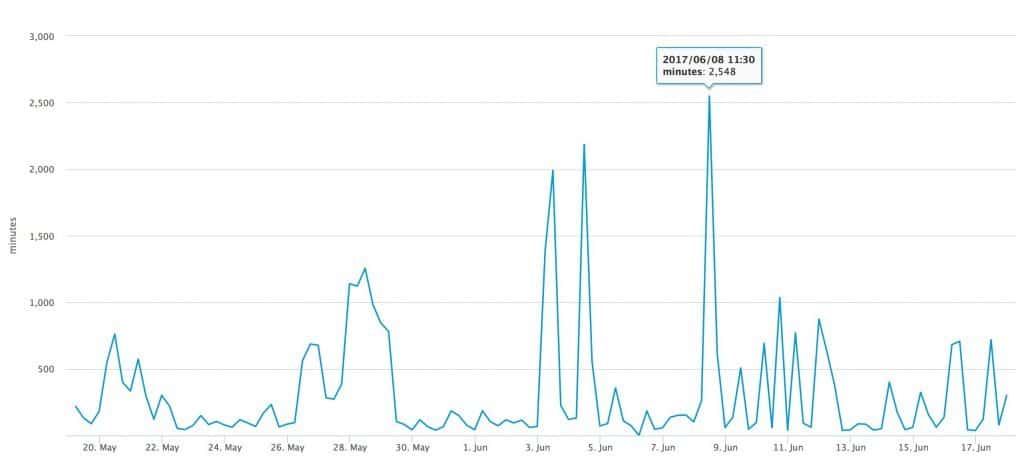Zero Confirmation Transactions are no longer science-fiction

The very basis of bitcoin transactions – the blockchain – has always relied on miner confirmations to determine whether a bitcoin transfer was indeed valid. For most bitcoin users, confirmations are essential to prevent double-spending, a scam where one bitcoin is spent at two different places at the same time. For the most part, this verification system is highly reliable, and usually 6 confirmations guarantee that a transaction was indeed valid. While verification was not so much of the problem in the past, recently, bitcoin has experienced an overflow of blockchain transactions, resulting in tremendous delays of up to days in magnitude. These delays simply reduce the chances of bitcoin becoming a currency of common use.
So what can be done to reduce wait time? A radical solution proposed and implemented by several well known bitcoin firms is Zero-confirmation transaction processing. Yes, Bitcoin transactions without any verification. While this may sound extremely insecure at first, it does have built-in measures to prevent double spending. Block Cypher, a blockchain company, has introduced what they call a ‘Confidence Factor’.
‘The confidence attribute is the assessment of the likelihood of an attempted double-spend succeeding against this transaction, based on a normalized network environment and known attack vectors. In simpler terms, if an unconfirmed transaction returns a confidence factor of 99.9%, then our data says there’s a 0.1% chance that an attempted double-spend will succeed. By design, we’re conservative. Even when we return 90% confidence, the likelihood of a successful double-spend is significantly lower than 10%.’
The company claims that during the recent Shape Shift double spend, only 1 out of a total of 100,000 transactions was let through by the confidence factor system, an indication that the mechanism is already robust and safe to use. Shapeshift, Bitnet, CoinHako, QuidPOS and most recently, Streamium have already adopted this system to make transfers faster for their customers, an advantage that they hope will turn into a profitable marketing tactic.
BlockCypher claims that the ‘confidence factor’ is particularly useful for smaller transactions that happen in the real world, giving the example of how a $9 transaction with 98% confidence can pass through in less than 8 seconds. The company also allows applications to fix their own confidence factor values using the APIs, meaning that the recipient decides the risk level he/she would like to take.
Despite how wonderful it may sound, confirmations are not going away anytime soon. Unlike actual verification checks, the confidence factor is a bit of a gamble, as it has no concrete proof of a transaction’s authenticity; rather it places its trust on probability of fraud. Fortunately, the company was quick to clarify on this matter with a blog post labelled ‘99% is not 100%’.
‘While our Confidence Factor is a hugely effective tool in mitigating risk, it does not end risk. We back up our Confidence Factor with a lot of methods and data (see below) but it’s ultimately a tool for risk assessment and mitigation. There are certain attacks that are impossible to prevent — like when a significant portion of dishonest mining power colludes — and they are beyond the scope of any confidence measure.’
For this reason, it is recommended that Zero Verification Transactions are restricted to small amounts, because the risk of loss and incentive for fraud is very small. The system is targeted at day-to-day transactions, such as buying a coffee or paying for groceries with Bitcoin, to improve the accessibility of cryptocurrencies. In other words, transactions above the safety limit—$100 would be my estimation—should pass through proper verification to avoid unwanted consequences. Companies should probably build this into their system to prevent unsuspecting bitcoin users from being involved in untraceable fraud.
Verdict: So is Zero Confirmation Technology going to change the way all Bitcoin transactions are processed? Is verification a thing of the past? No. Miner verification is an essential part of the bitcoin network. It is a core part of the transaction experience that is not going away anytime soon. Does it mean that the new technology is unusable? No, this is not true in any way. Block Cypher has created a new idea that is exciting right from its infancy. It is not necessarily a finished solution, but I’m optimistic that this not going to be the case for too long. As more companies adopt this methodology, new minds will be drawn into making this ‘gamble’ truly a replacement for verification. I must recommend all our readers to try out this mechanism for small transactions, as it represents what the future of Bitcoin might look like.
Source: Read Full Article


